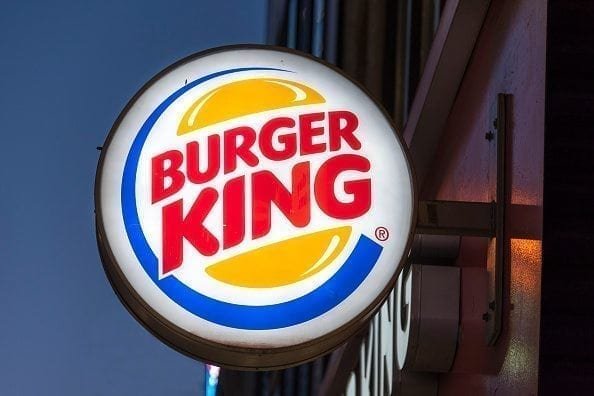A new report, released today (27 February) by Mighty Earth and Rainforest Foundation Norway (RFN), details findings of an investigation into Burger King and two major soy producers found in its supply chain, Cargill and Bunge.
The report, The Ultimate Mystery Meat, reveals the secrets about where the feed for Burger King’s chicken, bacon and beef come from, and links the companies to massive, systematic deforestation to clear sloth and jaguar habitat in Latin America.
Using satellite mapping, Mighty Earth and RFN identified areas of recent deforestation for soy in Latin America that were connected to Cargill and Bunge.
‘Burger King hamburgers are the ultimate mystery meat. We set out to find where they come from, and what we saw wasn’t pretty. Burger King is ruling over a kingdom of deforestation.’
KRISTIN URQUIZA
Mighty Earth campaign director
Origins of soy feed
The field investigation focused on both the Brazilian Cerrado, a vast forested savanna region in Brazil, and the Amazon basin lowlands in Bolivia.
The investigative team visited 28 locations across the Cerrado and Amazon basin, covering more than 3,000 kilometres, to document the origins of the soy that feeds the world’s cattle, chicken and pigs.
The team captured extensive aerial drone videos and photos that documented rapid clearing of some of the world’s last intact forests and savannas, including through systematic burning.
‘Burger King lacks policies to ensure that the food they sell does not contribute to forest destruction. This is unacceptable. They don’t even seem to care.’
NILS HERMANN RANUM
Head of policy and campaigns at Rainforest Foundation Norway
Burger King’s suppliers
Burger King does not make its suppliers public nor provide any substantial information about the origins of its Whoppers, chicken sandwiches or pork products.
While Burger King is far from the only company with serious environmental issues in its supply chain, it substantially lags behind its largest competitor, McDonald’s, in environmental and social requirements for its raw materials.
Burger King earned a score of zero in the Union of Concerned Scientists’ recent rankings of fast food companies.
‘Burger King, Cargill, Bunge and other companies have a unique opportunity to end the era of deforestation in Latin America, and to help move the world towards a vision of sustainable food. It’s time they seize it.’
MARINA PIATTO
Climate and environmental services manager at Brazilian environmental NGO Imaflora
 Play Video about This Rock Might Just Save The World
Play Video about This Rock Might Just Save The World Play Video about Play 2 hours of rock
Play Video about Play 2 hours of rock Play Video about Play 2 hours of brook
Play Video about Play 2 hours of brook Play Video about Play 2 hours of sheep
Play Video about Play 2 hours of sheep











































